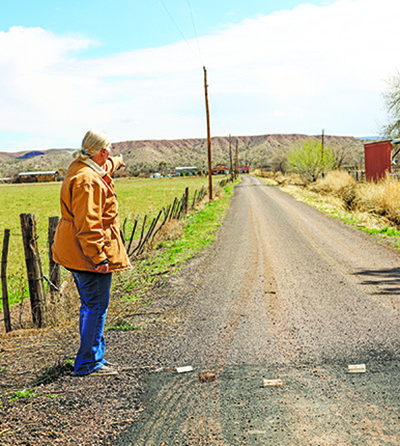
Summer is time for a vacation, or as they say in England “on holiday,” which is their prerogative, but that just doesn’t sound right to me. I didn’t plan on going into this because I was going to talk about vacations in general, but being a fan of some of their television series, I’ve noticed that the British, although they speak English, the particularities of their patois makes it tricky to know what they’re saying.
They have loos and lifts and flats and boots and bonnets, and most of us already know those things. But I’ve heard epithets that get me wanting to run for a natural-born Brit or the nearest Anglophile to translate. And this goes double or triple for British movies, such as “Snatch,” in which Brad Pitt’s vernacular and hilariously garbled accent is such that even the other English guys can’t understand what he’s saying.
After watching shows like Midsomer Murders, Downton Abbey and Doc Martin I’ve learned that a ponce is a poser, a chin wag is a conversation, and bugger off means “go away” (or if you prefer, “sod off”). To nick is to steal, being disrespectful is cheeky, and if you’re having difficulties you’re in seven and six. Knackered is extremely tired; a caravan is a travel trailer, blimey is short for “God blind me,” a quid is one pound sterling and one pound sterling is worth $1.38.
Enough is enough. I’ll just agree with George Bernard Shaw when he said that the U.S. and the U.K. are “two nations divided by a common language.”
To be fair, we’ve got a few idioms of our own in New Mexico that might need translation elsewhere. I’ve had to explain to visitors the meaning of biscochitos, Matanza, vigas, fry bread, arroyo, mitote, goat heads, virga, mijo, and luminaria.
Anyway, time to plan that vacation. As opposed to “holiday.” For me, a holiday is, for example, Labor Day, “the holidays” or the 4th of July, just past.
I’ve seen many Independence Days come and go in my lifetime and have to admit the all-day wing-ding put on by the Performing Arts Series is one of, if not the best, get-togethers when it comes to blending food, music and a terrific fireworks show. Kudos to Ronna Kalish for figuring out how to bring it back and put it in the Socorro rodeo arena.
Although the Declaration of Independence was ratified by the Continental Congress on July 4, it wasn’t until August 2, 1776, a whole month later, that it became a legal document, when John Hancock put his John Hancock on it, followed by 55 other patriots we don’t know the names of.
I have a reproduction of the original Declaration of Independence, and looking at it I was wondering two things: first, it was written in cursive; and two, that it might not be readily appreciated in this day and age. I mean, I’m wondering if the common vocabulary and reading comprehension of today are lower than in 1776.
As written, it is poetic, if not passionate: “When in the Course of human events, it becomes necessary for one people to dissolve the political bands which have connected them with another, and to assume among the powers of the earth, the separate and equal station to which the Laws of Nature and of Nature’s God entitle them, a decent respect to the opinions of mankind requires that they should declare the causes which impel them to the separation.”
Now, I don’t mean to be flippant or smart-alecky, but a re-write nowadays might go something like this: “Sometimes one group of people decide to split off from another group and to become an independent country, as the laws of Nature and of God say that they can. But when this happens, if they want other people to respect them, they should explain why they are splitting off.”
Wait. What? Never mind.



















